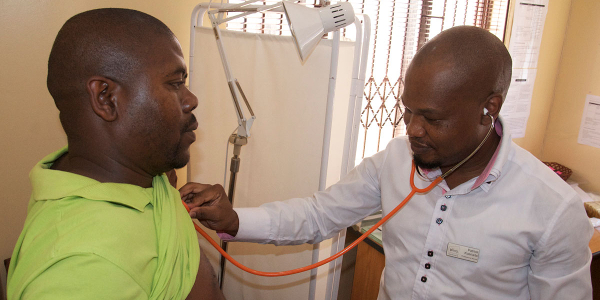![]()

Getting the health system right
Advertisement
In Ghana, health is seen by many as a very important issue. This is rightly so for three possible reasons: firstly, the population is growing and people are getting worried that the current system will not be able to cater
This has become a motivation for the few rich who can seek treatment at major medical centres abroad. It has promoted a culture of medical tourism, especially among politicians. In September 2008, for instance, Mr Kwadwo Baah-Wiredu, one of Ghana’s finest Finance Minister died in Pretoria, South Africa, while seeking medical care. In 2006, Jake Otanka Obetsebi-Lamptey died in the United Kingdom (UK). Before his death in 2012, President J. E. A. Mills received several medical treatments abroad. And in January this year, Vice President Mahamudu Bawumia was rushed to the UK for what government described as a medical leave.
No doubt the public has consistently been critical of
I have not yet recovered from my shock ever since a highly placed source at the Ghana Health Services revealed to me that the previous government sat tight for five years on a negotiation that was supposed to grant the Austrian government permission to build a 200-bed neurology facility for Korle-Bu, operate it and hand it over to the hospital after seven years.
The Health Minister, Mr Kwaku Agyeman-Manu, said on Joy FM’s Super Morning Show that “a ban on foreign treatments would amount to curtailing people’s freedom of choice.” He promised that the government was focused on improving the health system to serve as a legacy. But unfortunately, he never told us when and how this would be done. It thus behoves
The Government must strive to build a health system that will motivate the next generation to be proud of current leaders when they are gone. After his numerous travels abroad to seek medical care, Prof. Mills finally died at the 37 Military Hospital. Former Vice President, Paa Kwesi Amissah-Arthur, was also rushed to the same place although he was pronounced dead on arrival. These two unfortunate incidents are
There is one positive example we can all be proud of, the late former Vice President, Alhaji Aliu Mahama, decided to receive treatment at the Korle-Bu Teaching Hospital where he died. Jean-Jacques Rousseau’s theory of social contract should, therefore, remind our political leaders that they owe it a duty to get the health system of this country right for the benefit of every citizen.




